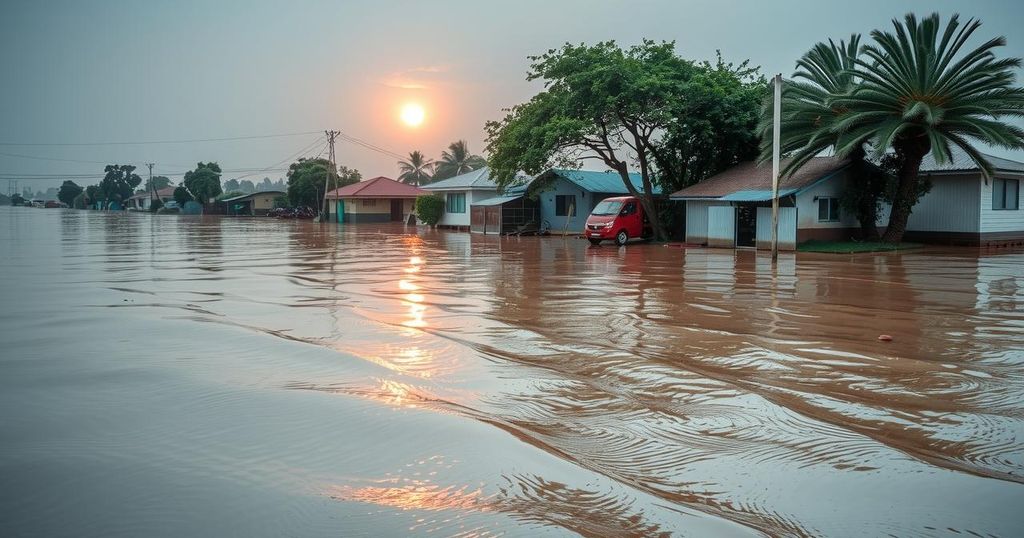Increasing Intensity of Flood Events in the Sahel Linked to Climate Change Impacts on AEWs

A recent study forecasts an increase in extreme flooding events in the Sahel driven by climate change, particularly through enhanced activity of African easterly waves, significantly impacting rainfall and dust transport. The findings indicate that warming temperatures are crucial for these changes, with consequences for regional climate and hurricane development.
The recent study highlights significant changes in the dynamics of African easterly waves (AEWs) exacerbated by climate change, which have profound implications for extreme flooding events in the Sahel region. Researchers found that by the end of the 21st century, there will be a marked increase in wave activity under various emission scenarios, driven by heightened baroclinicity due to temperature variations between the Guinea Coast and Sahara. This increased activity not only impacts rainfall patterns across the Sahel but also influences Saharan dust transport and the development of tropical cyclones in the Atlantic Ocean.
The Sahel region of Africa, known for its vulnerability to drought, faces an increase in extreme flooding events as a consequence of climate change, particularly through alterations in atmospheric phenomena such as AEWs. These waves play a crucial role in regional hydroclimate by affecting precipitation patterns, transporting dust, and initiating tropical storms. Understanding how global warming affects AEW activity is essential for predicting future severe weather events in the region.
The implications of increased AEW activity due to climate change extend beyond mere fluctuations in rainfall; they signify a looming threat of heightened flooding risks in the Sahel. The correlation between AEWs and extreme flooding emphasizes the need for continued research into the effects of climate change on weather patterns, as such shifts could disrupt not only local ecosystems but also broader climatic systems across the Atlantic.
Original Source: www.downtoearth.org.in






